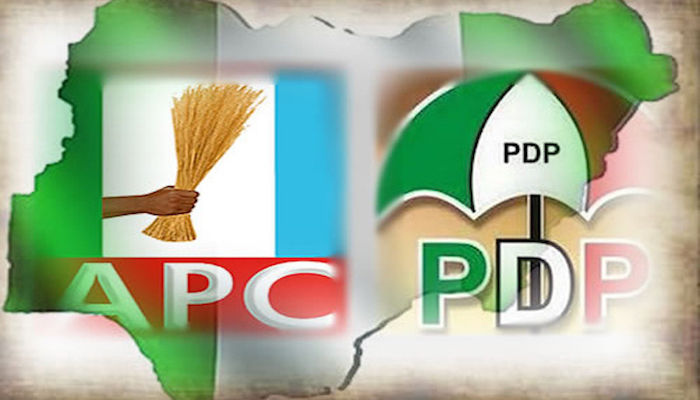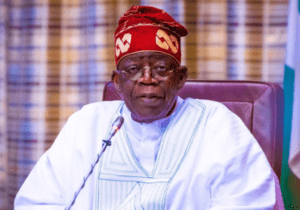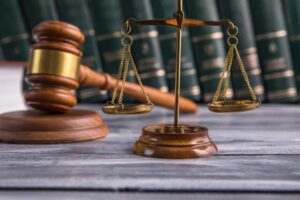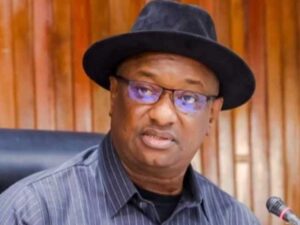

APC, PDP: Between defection and democracy in Nigeria
By Isaac Olusesi
The defection of the Peoples Democratic Party (PDP) politicians to the Osun State All Progressives Congress (APC), penultimate Thursday, got headlined, with the defection on the score sheet. But let the leadership of APC, a political party and the progeny of Action Congress (AC) and Action Congress of Nigeria (ACN), shine eyes.
The political defection could be worrisomely destabilising as it were in the past to AC, or was it ACN in the state, contended aback, suddenly, in no time, with the theatrical re-defection of the same crop of politicians, back to the conservative-reactionary PDP home in the state. The reading is that the defection, re-defection, almost in the same breath, is less ideologically inclined, a contempt for balance, conscience and ethics. It is a political behaviour of the defected and caucuses, bulging at the seams in response to the antagonistic relations of production and exchange in political economy, indicative of the competing personal economic and political interests on the strong conviction to overcome the host party and symptoms of poverty.
That’s politics of defection and poverty, explainable strictly in terms of the personal ambitions and greedy power politics of the defected, to be in the saddle and make a spectacle of themselves. The rat race, fiercely competitive struggle for power and wealth has the elasticity of the patterns and processes of the host party, shaken in the shoes and overstretched to the breaking point of fragility of internal democracy with the concomitant ideological dissonance, power dynamics, internal rifts and political tornadoes, made corrosive to the fundamental tenets of party system.
And worse for the very foundation of the two decades and a half of democracy in Nigeria, instituted, May 29, 1999, should the elected lawmakers romance with defection. In 2013 alone, 37 PDP Members of the House of Representatives defected to APC that left PDP with 171 members from 208, and APC with 174 members from 137 members. The elected political party, in this case, PDP got destabilized with the party’s voters’ electoral mandate, betrayed. Explaining this better, Thomas Hobbes, an English Philosopher writes, “The biggest threat to the stability of the state is the existence of too much scope for private judgement. The more each person is entitled to think for themselves in a matter of wellbeing, the worse it turns out for everyone.”
By that, defection ought not to have a place in Nigerian politics and democracy; it’s an aberration and the nation’s Electoral Act that ought to screw up courage, sails under false colours to frown at the promiscuous and imperceptive desertion of one political party for another. Also, the Nigerian Constitution that should have a face like thunder and get the shit scared out of defection, rather indolently or fearfully, lies between the devil and the deep sea, frightened to outlaw the cankerworm, called defection.
The constitution, not cared a fig, makes defection sectionally illegal that affects only National Assembly (NASS) and leaves other elective offices off the hooks. Section 68 (1) (9) of the constitution states, a person shall vacate his seat “being a person whose election to the House was sponsored by a political party, he becomes a member of another political party before the expiration of the period for which that House was elected, provided that his membership of the latter political party is not a result of a division in the political party of which he was previously a member or of a merger of two or more political parties or factions by one of which, he was previously sponsored.”
The die is cast, but the half way, with the March 8, 2022 Federal High Court, Abuja, judgement which threw out the election of Ebonyi State governor, David Umahi and his deputy, Kekeechi Igwe and fifteen (15) lawmakers in the state, who defected from PDP to APC, and declared that the votes cast for them in the election belonged to the political parties and not the candidates in the election. The argument was probably that the votes were practically cast for the political parties and the certificate of return issued by the Independent National Electoral Commission (INEC), with the names of the candidates and the political party to which the candidates belong. Somewhat, the globally applauded judgement was like water off duck’s back. Without effect.
Excuse me! Did I hear you, saying, Asiwaju Bola Ahmed Tinubu and Chief Adebisi Akande defected from Alliance for Democracy (AD) to AC? No, that couldn’t have been defection, understood as switching to one political party from another, and expecting intrinsic rewards and extrinsic motivation. Akande, a former deputy governor and governor of Oyo and Osun States, respectively and Tinubu, former Lagos State governor and today’s President of the Federal Republic of Nigeria, actually left AD and didn’t join with any of the existing political parties, opposition or governing, and small or big. But the two political titans, rather formed a totally new political party, named AC and have remained the Rock of Gibraltar in the party that transmuted to ACN, and then, APC.
The Tinubu-Akande servant leadership example, unflagging, fundamentally underscores ideological particularism, principled and ethical as well as serious and committed to the precepts of democracy and social progress with salutary impact, strengthening democracy. And that has made defection unattractive to the political apostles, following on their heels.
In sharp contrast, the professional political defectors, individually, power pragmatic, unprincipled, reckless and acerbic; and collectively, unethical, rag tagged militia and caustic, a rolling stone, up and down, down and down, from one political party to another party, gathering no moss. And down out. They are political mercenaries on racketeering, power addicted and are wont only to walk up the staircase to power position, one-track minded, compulsively to get catapulted to political power for capital accumulation on profiteering. And that’s ridiculous to politics, a transformative tool for social change just as it’s abrasive, grinding to the political party, otherwise, organised and founded on ideology and principles, the sole reason political parties are registered by INEC to compete for power and form government.
The incongruity is that the defected, self customised Atiku Abubarkars, Shuaib Oyedokuns, in the instance, the aborigines of PDP, had once defected to AC, ACN, APC and re- defected to PDP; and from PDP, re- defected to APC, are the very individuals who had previously, pontificated against the politics of defection in my interviews with them The two, at different times in the wee life of the nation’s democracy, spoke with me at Wadata Plaza, headquarters of PDP, somewhere in Wuse, Zone 3, Abuja. Of the ilk, Samuel Ortom and Godwin Obaseki, respectively, Benue and Edo State governors under APC also defected to PDP in order to secure their 2ndterm governorship ticket.
All of them, defection warlords, never walked their talk, and it’s thus good that PDP is, today, having the metaphor of wastages overtaken its very facet, tragically, like a dominant magnificent cancer, with the party’s best politicians wasted to Osun APC. Meaning, the APC leadership in the state has tactical burdens, staring in the face. The APC’s state chairman, Sooko Tajudeen Lawal has the burden of the regular critical appraisal and synthesis of the political values and political loyalty of the decamped; the burden of tilting positively, the political attitudes and behaviour of the entire new men and women in the party; the burden of generating popular and acceptable disposition in them in terms of loyalty, allegiance and willingness in the new party people to have concerns above parochial concerns; and the burden of affective, not just effective, management of conflicts in the daily interactions with the party.
Lawal to hold his breath, off the tenterhooks of burdens but mum cannot be the word. If he engineers the burdens slowly, he might be accused of procrastination, ineptitude and indecisiveness; and if he doesn’t brook lethargy and has dispatch as a watchword, he might paradoxically, be hated for indecent haste. To make headway in the tick of the circumstances, it’s for him, the axiom:”make haste slowly but steadily” is invented.
He has to bring the old and new party people under cooperative captainship and tell them to shape up as no one can put the skids under him to stop the now bigger Osun APC from progress. The tail cannot wag the dog, yet the defected cannot be thrown to the dogs as it’s worthless playing the devil to have the political careers of the defected ruined. While he puts his cards on the table in the throes and takes renewed steps that actively would re-institutionalise APC as a party to beat in any elections in the state, also, in terms of increased stability, increased welfare, increased mobilisation mathematics on diverse other publics of the party. But why all of this?
The Osun APC’s solidarity and interest articulation must be jealously safeguarded against receding to sheer political anarchy, insensate hostility, mutual suspicion, unbridled antagonism, acts of incendiarism, and other mutually contradictory, incompatible tendencies, the party, once upon a time, experienced, due to grievous lack of internal cohesion. And the huge electoral loss, as corollary, is Latin America’s Autogolpe, a conscious coup against one’s self.
The necessity, also stems from the exigencies to keep taps on the new members and their PDP background in the little unprovoked but tiger-baiting, naturally, causing muscle flexes and exchanges meant to show raw power, arrogance of wealth and shameless exhibitions. The proclivity often as not, degenerate to enormous conflicts and devaluation of its moral authorities that stagger the party from storms to stresses, trials, and depressions to hemorrhage, set the stage for disintegration and cast the party in dissident dissonance, incapable of congealed and coalesced organic whole. And the outcome is defection, the Osun APC’s profit today.
Still on my track. The alibi, otherwise, the legitimacy for defection beyond all disputes, lies in the Fundamental Human Rights in Section 40(6) of the Nigerian Constitution that states: “Every person is entitled to assemble freely and associate with other persons; and in particular, he may form or belong to any political party, trade unions and associations in the protection of his interests.”
And the defected from PDP, entered. No contradictions exploded on anybody’s face at the event of the defection to APC; no sign of distaste, loomed in the horizon; and nothing put damper on the defection event held at the APC state secretariat, Osogbo, state capital, with hugs here and handshakes there that drive an acquired taste for defection.
And for all I care or know, political defection holds sway in the final analysis of the party’s internal division, lack of transparency, ideology, political agenda in the party processes, and politicians’ mantra: ‘no permanent allies but permanent interests,’ that have continued to cause defections from one political party to another, with the past Vice President, past and serving NASS members, past and sitting governors, and other brass hats as lead defectors.
And it’s unhealthy for the party system and antithetical to the growth of democracy in Nigeria, and elsewhere.
OLUSESI writes via [email protected]




